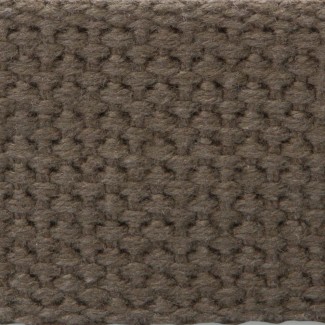Cotton Webbing: The Ideal Choice for Specific Applications
 Compared to similar wholesale webbing materials, cotton stands out in many respects. Of course, cotton is not ideal for all applications and environments. It has benefits that make it applicable to certain applications, which we will review.
Compared to similar wholesale webbing materials, cotton stands out in many respects. Of course, cotton is not ideal for all applications and environments. It has benefits that make it applicable to certain applications, which we will review.
Benefits of Cotton Webbing
-
Natural and Hypoallergenic: Cotton is often better tolerated by individuals with sensitive skin or allergies. Unlike some synthetic materials, which can cause skin irritation or allergic reactions, cotton's hypoallergenic nature makes it an optimal choice for products in direct and prolonged contact with the skin.
-
Breathability: Thanks to its organic origin, cotton webbing promotes air circulation. This breathability reduces the risk of moisture being trapped, a characteristic especially beneficial in humid conditions or for applications requiring comfort and ventilation.
-
Durability and Strength: While cotton might seem soft, it boasts impressive tensile strength, making it robust enough for various applications. Plus, its abrasion resistance further underscores its longevity.
-
Environmentally Friendly: With sustainability becoming a significant concern in various industries, cotton offers an eco-friendly alternative to petroleum-based products. It's biodegradable, meaning that cotton webbing products will not persist indefinitely in landfills.
-
Flexibility and Softness: Cotton webbing has a softer hand, unlike its synthetic counterparts. This means it's more flexible, making it ideal for applications where comfort is paramount, such as clothing or certain harnesses.
-
Highly Absorbent: Cotton's absorbency is another noteworthy feature. It can hold water up to 27 times its weight. This makes it a desirable choice for applications requiring moisture wicking or absorption.
When Should Cotton Webbing Be Used?
-
Medical Supplies: Given its hypoallergenic nature, cotton webbing is commonly used in medical braces, slings, and other supports. Its gentleness on the skin ensures reduced irritation for patients.
-
Fashion and Apparel: Cotton's comfort, flexibility, and aesthetic appeal make it a top choice in belts, bags, and other accessories.
-
Sports Equipment: Cotton webbing provides comfort without compromising on strength for sports gear that's in direct contact with skin, like harnesses or grips.
-
Eco-friendly Products: Manufacturers keen on offering sustainable, green products often opt for cotton webbing as a key material.
-
Marine Environments: Given cotton's ability to resist damage from saltwater, it's a preferred choice in various marine applications.
While numerous webbing materials are available in the market, cotton webbing's distinct properties make it the go-to choice for specific applications. Manufacturers and users alike can leverage its benefits to create functional but also comfortable, sustainable, and safe products.
Related Reading
 Compared to similar wholesale webbing materials, cotton stands out in many respects. Of course, cotton is not ideal for all applications and environments. It has benefits that make it applicable to certain applications, which we will review.
Compared to similar wholesale webbing materials, cotton stands out in many respects. Of course, cotton is not ideal for all applications and environments. It has benefits that make it applicable to certain applications, which we will review.